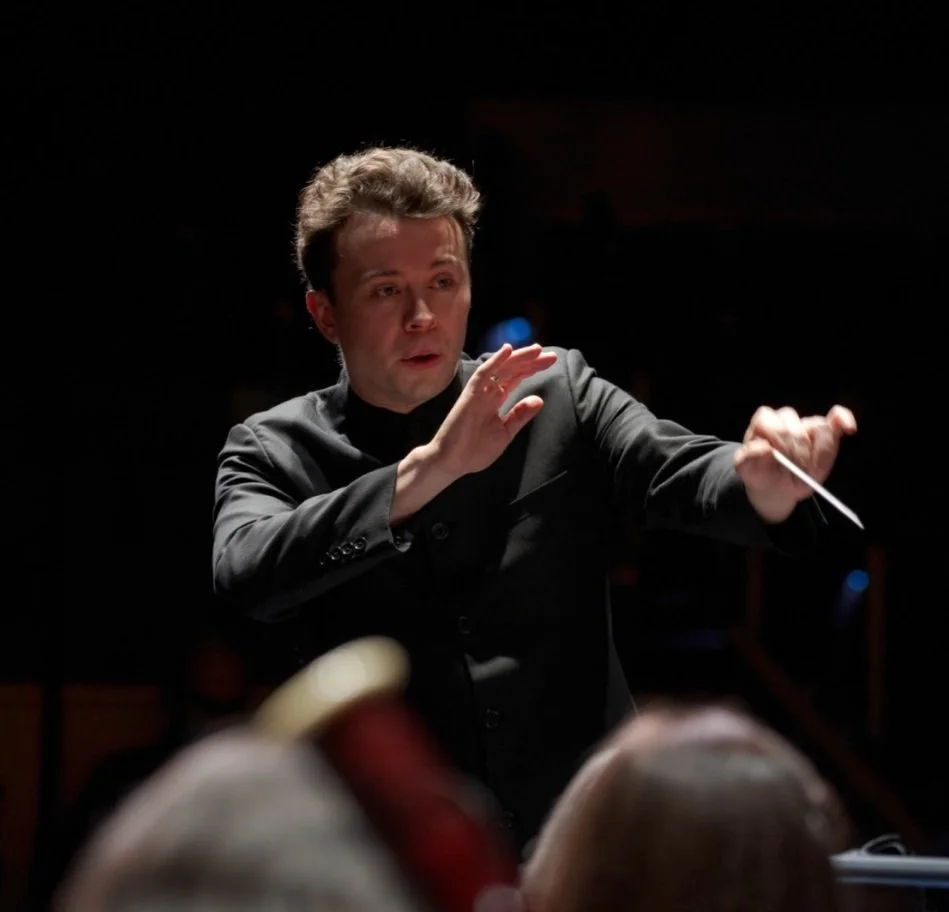My guest today is the highly-regarded Maestro Devin Patrick Hughes, music director and conductor of the Boulder Symphony and Arapahoe Philharmonic and Arts and Culture Commissioner for the City of Boulder. Throughout his career Hughes shared foundations that nurture the development of young performers, composers, and conductors. Serving as a guest clinician for school districts across Colorado, the Maestro’s mission is to make symphonic music more universally accessible to all walks of life. Using his platform to showcase new music created by minority demographics, he incorporates diversity by targeting people who don’t know they love symphonic music. In response to Covid-19, Hughes has created multiple programs connecting orchestras to their communities. Partnering with organizations such as Balfour Senior Assisted Living and Community Food Share to produce performances and dinners for both virtually and live. Hughes can be heard on One Symphony, a new podcast amplifying the voices of composers and other artistic entrepreneurs. Here with me now is Maestro Devin Patrick Hughes, welcome!
Conducting is such an interesting profession, just how you have to track everything that’s going on.
So, sometimes people will ask like they’ll go to a performance and say well those are the musicians and the conductor like Friday night they’re working but the rest of the time what they do and that’s a really great question. A conductor’s life, it morphs as you get older, as you mature. Hopefully we’re maturing over the years. You’re immersed in the score. You’re becoming another person, who in many cases, could be the composer but in many times the composer has a creation that they don’t even know. like Brahm’s or Beethoven that they would talk about their composition experiences or even Leonard Bernstein when he was performing, he would not remember. That would be lost time when they created those creations. You’re embodying the spirit of something that could have been written two hundred years ago where you can’t talk to the composer or something that has just been written hot off the press. We’re doing a piece in Denver that the composer just wrote the notes so she’s not finished yet but I can give it to you anyway. So, you’re able to communicate with the composer and see what the intentions are behind it. That’s an ideal world when you’re really. It’s like any musician, where we make music with people, sometimes 10s or 100s of people, but in the end of the day most of our time is spent in our practice room, in our study, at our piano in our mind’s face just trying to figure out how we can best serve this piece of art. Even Beethoven’s Fifth Symphony, when we perform it, it’s the first time it’s being played. That’s how we feel and that’s why a lot of it is so novel. Stravinsky’s Rite of Spring written in 1913, when it was written it provoked riots in the concert hall and the people were literally shouting so loud that the dancers couldn’t hear the musicians and there was no coordination there. Today that music still sounds like it was written today as opposed to a hundred or two hundred years from now and that’s kind of our goal. It’s musically to bring this music to life and to play it like we’re trying to convince somebody. We’re playing it like somebody is coming into a concert hall for the first time. Maybe their friend dragged them in or maybe they got a coupon on Groupon or something like that but we want them to just fall head over heels in love with this music and see that this music, whether it’s written today or two hundred years ago or four hundred years ago, has something that connects the human experience and connects us all because at the end of the day, music whether it be orchestral or pop or rock or hip-hop, it’s built to bring people together and that’s something that today our world needs more than ever, the art of connection.
Absolutely. It almost feels as if you’re channeling the energy of that music piece.
That’s really spot on that you say that. The conducting profession emerged from 200 years ago when one composer, Ludwig van Beethoven, wrote music that was too complicated because it used to just be somebody on the first violin or the keyboard would lead the ensemble and then Beethoven wrote music to the extent where you needed somebody showing time beating, a visual cue for the orchestra to stay together. The conductor is the one person on that stage that is not making any sound. So we’re up there doing this thing and it’s the greatest illusion of power probably that ever has been fathomed because people think that well what about the power that you have. You have no power. It’s the musicians who have the power. So, we’re working, creating the channels as you said for the music to be interpreted and performed and created.
